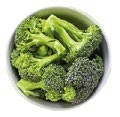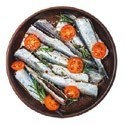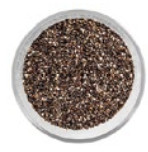Constantly battling the bulge or just not sleeping or eating properly? Here’s a must-read for the sake of your heart health.


Heart disease is a leading cause of death for Singaporean women. Here, we look at the latest research about heart health, and speak to experts, including Head of the Pre- Clinical Disease and Prevention Unit and cardiologist Associate Professor Melinda Carrington, to see what you can do to improve your odds...
You can be slim and still be at risk of heart problems
If you have a family history of heart disease, being slim isn’t enough to protect you from heart attack or stroke. Because if your mother, father or a sibling has a heart attack before 60, that means your risk of heart attack is increased, too.
“And you can be slim but have high cholesterol due to your genes,” says cardiologist Assoc Prof Carrington.
WHAT TO DO: If you have a family history of heart problems or high cholesterol, speak to your GP about changes that can reduce your risk of poor heart health. Your GP may also recommend medication if you have high cholesterol.
The number one risk factor for heart disease is high blood pressure
High blood pressure is called the “silent killer” because often people don’t know they have it. “Yet it is a bigger risk factor for heart problems than obesity,” says Assoc Prof Carrington. Blood pressure can be influenced by family history, too much salt or alcohol in your diet, being overweight and a lack of exercise. The good news is that medications can help control it.
WHAT TO DO: When you see your GP for a check-up or for another health issue, get your blood pressure checked, too.
Sleep Matters
“People who are sleep deprived are often stressed and then the body releases stress hormones like cortisol and adrenalin. These hormones drive up blood pressure,” explains Professor Tom Marwick from the Baker Heart and Diabetes Institute in Australia. People over the age of 45 who sleep less than six hours have double the risk of stroke or heart attack than people who sleep for longer.
WHAT TO DO: Aim for seven or eight hours of sleep each night.
Hormone replacement therapy (HRT) could be good for your heart
HRT has been controversial but it may lower the risk of atherosclerosis – the build-up of plaque that damages and blocks the heart’s arteries. The American College of Cardiology reports that research has found women using HRT are 30 per cent less likely to die than menopausal women who don’t use HRT and 36 per cent less likely to have signs of high heart attack risk.
WHAT TO DO: If you are menopausal, discuss the possible benefits of HRT for your heart health with your GP.
You can have a heart attack and not even realise it
“Half of all heart attacks are silent – they happen without women realising it because women can have different symptoms to men. Women don’t always get crushing chest pain,” says Assoc Prof Carrington. Up to 40 per cent of women don’t have that classic heart pain.
WHAT TO DO: Recognise the signs of heart attack for women – shortness of breath, pain in the jaw or back, nausea, clamminess and fatigue. If you experience possible symptoms, call 995 immediately.
Your five a day should be eight
The risk of dying prematurely from health problems drops by almost a third, and the risk of dying from heart disease drops by a quarter, if you have 800 g of fruits and vegetables a day.
WHAT TO DO: Apples, pears, citrus fruit and leafy vegetables are the best for heart health.
Don’t just walk the dog…
“For a healthy heart you need to sweat and puff a little,” says Prof Marwick. Your heart is a muscle and like any muscle, using it keeps it strong. Exercise also improves heart disease risk factors like high blood pressure and being overweight.

Painkillers won’t always help
Some over-the-counter painkillers may raise the risk of heart attack. A large Danish study over 10 years found a 31 per cent increased risk of heart attack when people used non-steroidal anti-inflammatory drugs.
WHAT TO DO: Use drugs, such as ibuprofen, with caution and don’t have more than 1,200 mg per day.
Lonely hearts
“Loneliness and isolation can activate stress pathways that can lead to depression,” says Prof Marwick. People with depression are four times as likely to have heart disease and you’re also twice as likely to die after a heart disease diagnosis with depression.
WHAT TO DO: Know the signs of depression – withdrawing, poor concentration, using alcohol or drugs, weight gain or weight loss, sleep disturbances and feeling like a failure. Combat loneliness by volunteering or joining a community or interest group.
An apple isn’t always good for you
An apple-shaped body is at greater risk of heart problems because excess fat around the stomach is stored internally around the kidneys, liver, digestive organs and pancreas.










Antioxidants like the red pigment in tomatoes, known as lycopene, neutralise cell-damaging free radicals. They are found in tomatoes, grapefruit, watermelon and guava.























